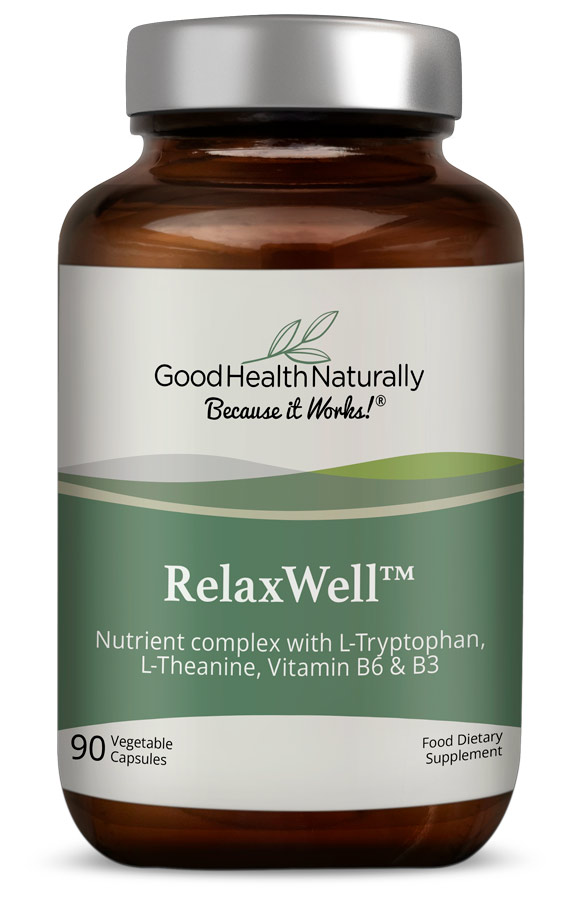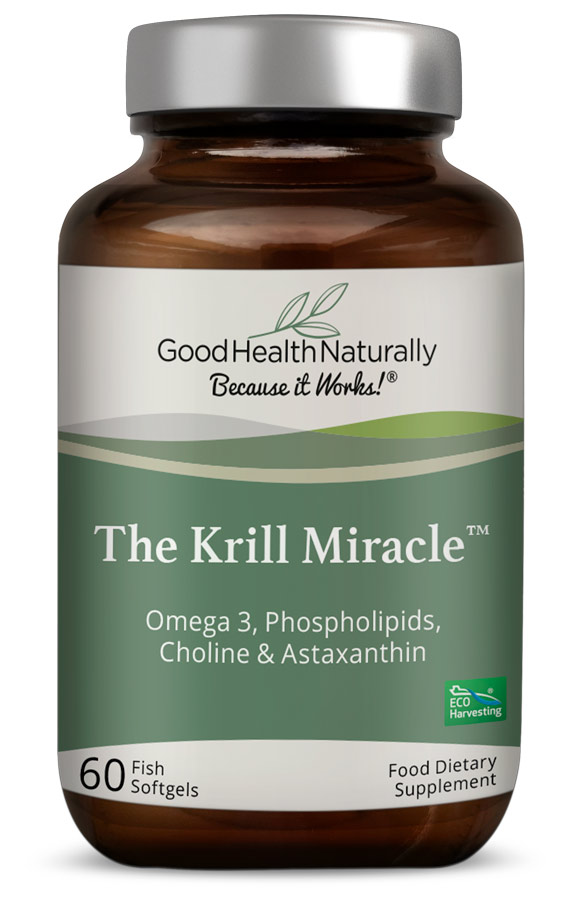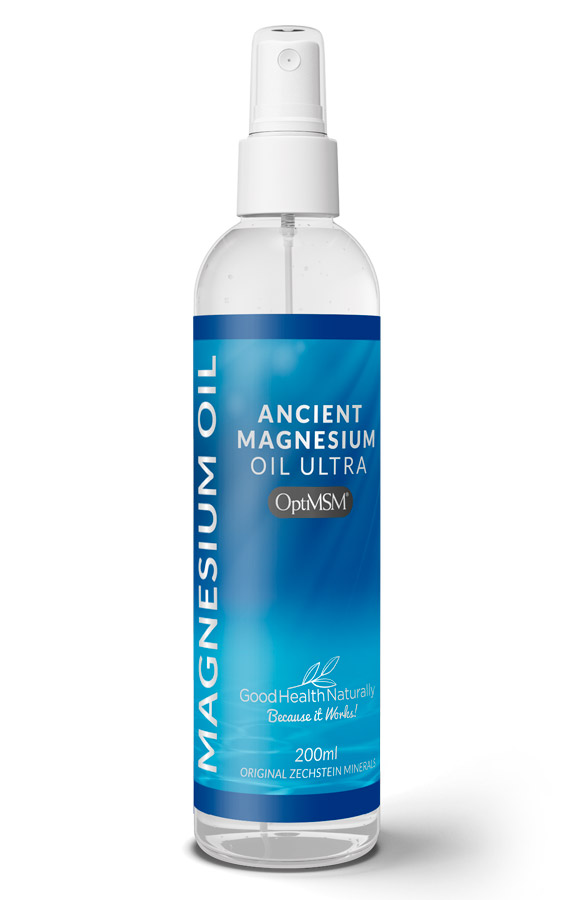We live in a fast-paced world, and stress has become an almost inevitable part of life for many people. From work pressures to personal responsibilities, the demands of modern living can often leave us feeling overwhelmed and anxious. The number of people suffering from stress has been on the rise for decades. As a result, ‘Stress Awareness Month’ in April was launched more than 30 years ago to draw attention to this ‘modern health epidemic.’ It is now well documented that chronic stress poses a considerable danger to our health, with research showing it can be just as bad as smoking, obesity or lack of exercise. So why not start taking some action today to help relieve stress naturally?
When Stress Becomes Detrimental
We are built to cope with short bursts of stress. Our ancestors simply wouldn’t have survived the threat of wild animals like bears or lions without a stress response known as ‘fight-or-flight,’ which prepared the body for either ‘attack’ or ‘escape.’ Today, we still respond to danger with the same automatic reaction even though our modern stresses tend not to be physical threats. Hormones like adrenaline and cortisol increase heart and breathing rates while processes like digestion and repair slow down. Once the threat is dealt with, the body should quickly return to normal.
But, if stress becomes long-term, our bodies stay in this heightened state. Imagine constantly pushing your foot on the accelerator, it would wear out the car, and persistent stress will do the same to our bodies. We can end up with hormone imbalances, high blood pressure, digestive issues and poor immunity.
Meditation and Deep Breathing
One of the most powerful ways to relieve stress naturally is meditation. This ancient practice involves focusing attention on the present moment. Research has shown it can reduce stress hormones like cortisol, lower blood pressure and help promote emotional well-being. Even just a few minutes a day can make a significant difference in how you perceive and respond to all the stressors in your life.
Deep, mindful breathing can also be useful. There are two types of breathing: anxious shallow in the chest and relaxed breathing from the diaphragm. Chest breathing should only be temporary. Retraining the body to breathe from the diaphragm in a relaxed, healthy manner will help clear out carbon dioxide and cortisol.
Get Moving
Physical activity is not only essential for maintaining overall health but can also be a great way to relieve stress naturally. Exercise releases endorphins, the body’s natural feel-good chemicals, which can help improve mood and reduce stress levels.
Connecting with nature is one of the most potent antidotes to stress in our modern world. Whether it’s taking a stroll in the park, walking in woodland or on the beach, it can have a profoundly calming effect on the nervous system. Immersing yourself in nature allows you to disconnect from the hustle and bustle of everyday life and reconnect with the rhythms of the natural world.
Make Sleep a Priority
Adequate sleep is crucial for maintaining both physical and mental health, yet it’s often one of the first things to suffer when we’re stressed. It is estimated half of adults experiencing stress have poor sleep. Their brains are simply too wired at night to switch off. The knock-on effect of not getting enough sleep is low energy, irritability, mood swings and an inability to think clearly. It can become a vicious circle because inadequate sleep may well increase feelings of stress. To relieve stress naturally and improve sleep, establish a relaxing bedtime routine and create a comfortable sleep environment.
Eat Nourishing Food
The Mediterranean diet is a perfect choice for helping to relieve stress naturally and supporting good mental well-being. It recommends eating plenty of vegetables, low-sugar fruit such as apples and berries and healthy fats like olive oil, coconut oil, avocados, plus nuts, seeds, legumes, good quality meat, fish and seafood. One study found the risks of stress, anxiety and depression were up to 35% lower in people eating the Mediterranean diet compared to the traditional ‘Western’ diet.
Poor gut health can also affect our resilience to stress. Keep the microbiome happy with fermented foods such as kefir, sauerkraut, or kimchi, fibre, and prebiotic vegetables, including artichoke, leek, apple, garlic, and onion.
Don’t Reach for Sugary Snacks
It is all too easy during busy or stressful stress times to reach out for sugary snacks, crisps, coffee, or fizzy drinks for a quick energy boost. But the brief lift is followed by a crashing drop in blood sugar levels, which can end up making us feel irritable and even worse. Studies show a correlation between diets high in refined, processed carbohydrates and worsening symptoms of mood disorders, such as stress and anxiety. Instead, to relieve stress naturally snack on nuts and seeds, hummus and vegetable sticks. Include a portion of protein with every meal to help balance blood sugars and stop crashes in energy.
Nutrient Support
Studies show that stress can deplete vitamins and minerals from our bodies, particularly magnesium, vitamin C, and B vitamins. So, it’s important to ensure that we are getting plenty of these nutrients during stressful times.
B vitamins, especially B5, B6, and B12, support our nervous systems and help the body properly absorb energy from our food.
The largest store of vitamin C is in the adrenal glands, where the stress hormones are made. Research shows people with higher levels of vitamin C tend to be more resilient and able to cope. Don’t forget B vitamins and vitamin C are water soluble so you need a daily supply.
Omega-3 fatty acids found in oily fish, nuts and seeds can also be useful to relieve stress naturally. They help regulate the neurotransmitters dopamine and serotonin, which have a calming and relaxing effect on the body.
Nature’s Relaxant
Magnesium can have a wonderful calming effect, relaxing muscles and helping reduce stress. Most of us are low in this essential mineral, and it can become even further depleted during times of stress as our bodies utilise it and excrete it in greater amounts. Add magnesium flakes to your evening bath, or apply it topically as a lotion or oil before bed. This can be hugely beneficial to relieve stress naturally and promote good sleep.
Amino Aid
L Tryptophan and L Theanine are both amino acids which research shows can help relieve stress naturally. L tryptophan is an essential amino acid found in white meat and oats. It’s a precursor to the “feel good” neurotransmitter serotonin. A study demonstrated it can help calm the mind and improve mood and sleep. L-theanine is a naturally occurring non-protein amino acid found in green tea. It is known to help reduce stress-related symptoms and help promote relaxation.
Herbal Help
Ashwagandha could be a great choice for relieving stress naturally. It is a medicinal herb used in Ayurvedic medicine for centuries. It is renowned for its adaptogenic properties and can help the body regulate cortisol. Studies show it can safely and effectively improve resistance towards stress and improve quality of life.
To Conclude
While stress may be an unavoidable part of life, there are plenty of ways to relieve stress naturally with practices such as meditation or deep breathing exercises, spending time in nature, maintaining a healthy diet and prioritising sleep. So why not explore some of these options so you can enjoy a greater sense of calm and well-being?
Please note: The product images represent the ongoing rebranding across Good Health Naturally range and may currently vary from actual stock.
References
1 https://www.mentalhealth.org.uk/about-us/news/survey-stressed-nation-UK-overwhelmed-unable-to-cope
2 https://www.ncbi.nlm.nih.gov/pmc/articles/PMC5579396/
3 https://pubmed.ncbi.nlm.nih.gov/27472404/
4 https://pubmed.ncbi.nlm.nih.gov/2402180/
5 https://www.ncbi.nlm.nih.gov/pmc/articles/PMC2775419/
6 https://pubmed.ncbi.nlm.nih.gov/22314561/
7 https://pubmed.ncbi.nlm.nih.gov/14522731/
8 https://www.ncbi.nlm.nih.gov/pmc/articles/PMC6770181/
9 https://pubmed.ncbi.nlm.nih.gov/32745879/
10 https://www.ncbi.nlm.nih.gov/pmc/articles/PMC4266573/
11 https://www.ncbi.nlm.nih.gov/pmc/articles/PMC4728667/
12 https://www.ncbi.nlm.nih.gov/pmc/articles/PMC4393508/
13 https://www.ncbi.nlm.nih.gov/pmc/articles/PMC6836118/
14 https://pubmed.ncbi.nlm.nih.gov/30707852/
15 https://www.sciencedirect.com/science/article/pii/S2352385915003138?via%3Dihub
16 https://www.ncbi.nlm.nih.gov/pmc/articles/PMC3573577/







